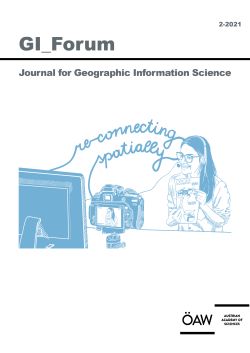Gulam Mohiuddin,
Jan–Peter Mund
S. 202 - 214
doi:
10.1553/giscience2021_02_s202
Verlag der Österreichischen Akademie der Wissenschaften
doi:
10.1553/giscience2021_02_s202
Abstract:
This paper demonstrates the use of remote sensing in planning urban green spaces (UGSs). UGSs emerged as a popular solution to combat the effects of Urban Heat Island, especially in tropical cities. UGS projects often need to identify priority implementation areas due to limited funding for UGSs. This study includes two Asian cities, namely Phnom Penh (Cambodia) and Chittagong (Bangladesh). It is not comparative, but it has identified priority administrative areas for future UGSs in both cities. We used Landsat 8 data and the remote sensing technique Land Surface Temperature (LST) analysis using radiance, temperature brightness and emissivity. LST data were then intersected with the administrative boundaries of the study areas. The identification of priority administrative areas for UGS considered both the area coverage and the percentage of coverage in terms of maximum LST within the administrative units’ boundaries. The result found 8 and 10 administrative units to be hotspots for UGSs, for Phnom Penh and Chittagong respectively. The proposed method will be useful to both government and non-government organizations alike, especially in tropical countries.Smart cities, despite their supposed benefits, also pose challenges to inhabitants. The promised improvements of quality of life, sustainability and efficiency are accompanied by a lack of data security and privacy, and a loss of spontaneous and chaotic but enjoyable urban life.
Land Surface Temperature (LST), urban green spaces (UGS), remote sensing
Published Online:
2021/12/28 12:43:58
Object Identifier:
0xc1aa5576 0x003d25fa
Rights:https://creativecommons.org/licenses/by-nd/4.0/
GI_Forum publishes high quality original research across the transdisciplinary field of Geographic Information Science (GIScience). The journal provides a platform for dialogue among GI-Scientists and educators, technologists and critical thinkers in an ongoing effort to advance the field and ultimately contribute to the creation of an informed GISociety. Submissions concentrate on innovation in education, science, methodology and technologies in the spatial domain and their role towards a more just, ethical and sustainable science and society. GI_Forum implements the policy of open access publication after a double-blind peer review process through a highly international team of seasoned scientists for quality assurance. Special emphasis is put on actively supporting young scientists through formative reviews of their submissions. Only English language contributions are published.
Starting 2016, GI_Forum publishes two issues a Year.
Joumal Information is available at: GI-Forum
GI_Forum is listed on the Directory of Open Access Journals (DOAJ)
In the 2021-2 issue, the following three thematic areas are addressed: Advances in GIScience, Geo-Social Analytics, and Learning and Education with Geomedia. The contributions, for example, evaluate modes of generalization in animated choropleth maps; investigate different Convolutional Neural Networks (CNNs) architectures for monitoring wildlife in complex natural habitats; introduce an Augmented Reality learning environment for Geoinformatics education; investigate pedestrian infrastructure in a city considering the COVID-19 restrictions; or propose a customised workflow for place extraction from social media text and subsequent geocoding; or address various mobility issues for sustainable cities.




 Home
Home Print
Print
 References
References
 Share
Share
